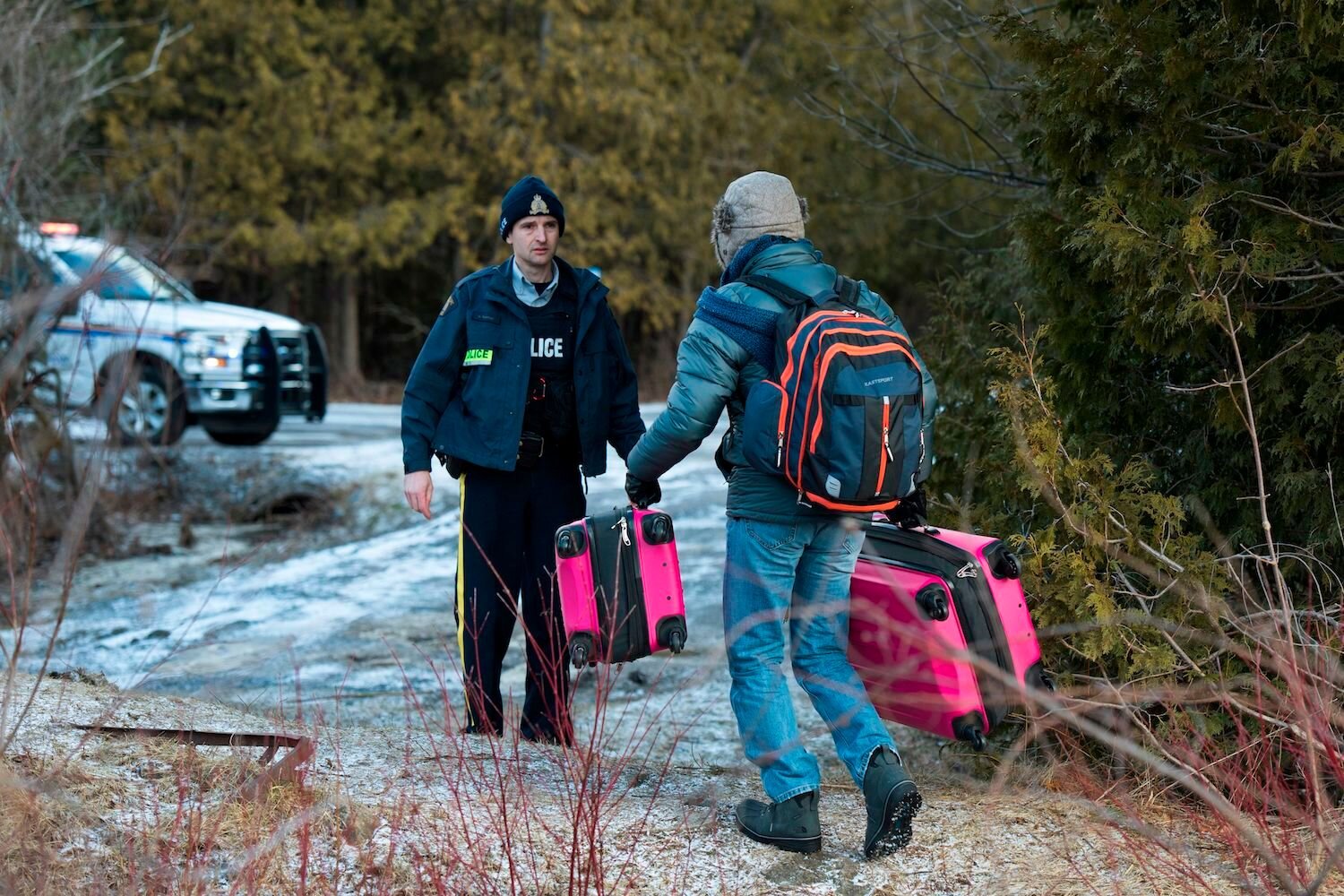Morgana Adby: Shutting Canada's borders to refugees is not the way to beat COVID-19
Photo Credit: (Foreign Policy/Google Images)
Written by: Morgana Adby
Canada has decided to turn away refugees attempting to enter Canada from the United States and all other ports of entry.
Already, there were some restrictions on point of entry, because the government maintains that the United States is safe for refugees, through the Safe Third Country Agreement. Now, refugees are being turned away at any entry point. Initially, the government’s pandemic policy for refugees was two weeks of isolation, but by the end of March, asylum border crossings were deemed as non-essential travel.
Migrant Rights groups have been contesting this in an especially strong manner since the White House took an indiscriminate and harsh stance on migrants. However, the specific experience of non-citizens in the United States is poorly suited to accommodate refugees during a health crisis.
Healthcare in the United States is pay to play, and more so for non-nationals. This combined with the building pressures can easily dissolve into xenophobia. In any case, thousands of refugee claims are made by irregular border crossers at the Canada-United States border, every quarter.
Refugees must be protected
Asylum seekers are among the most underrepresented people on Earth. With no state to represent them, they are entirely reliant on the policies of nations that may not see them as a priority. This is an unsurprising statement, but important to keep fresh in your mind. There is a good reason that the international standard for refugees is that they are seen as the responsibility of whichever state is closest to help.
Refugees are not a problem that can just ‘go away’ because a country decides that they do not want to deal with it. There is no superhero to swoop in and save the day; people will die. So, if we do choose to skirt our humanitarian responsibilities, it better be for good reason.
Some will claim that we closed our borders to protect Canadians from new outbreaks of COVID-19. Refugees travel for long distances, often with limited supplies or using crowded transportation. They say that allowing refugees in could bring in the virus. So, in this situation, do we have a solid justification?
In short, no. It may be illegal, is likely not the best way to protect Canadians safety and lifestyle, and appeals to a nationalism better suited for zero-sum games.
Firstly, it is worth noting the legality of the new policy has been contested, specifically if those turned away at the Canadian border are sent back to their country of origin by the United States.
The public health perspective
From a public health perspective, there is more ambiguity than you may assume. Although it may seem intuitive that closing borders ought to apply universally to refugees, the desired outcome may not follow. In other Canada Files articles, contributors have mentioned that neglecting homelessness in a pandemic is not best practice. The homeless population has less access to good hygiene, higher rates of mental illness and substance abuse, resulting in more struggles with social distancing. Hence, there needs to be support available so that the virus does not spread through these marginalized people, putting more strain on the healthcare system and furthering the spread of the virus to people of all classes.
A similar set of principles apply to refugees. Refugee camps often have limited water, little soap and insufficient nutrition in a crowded camp. For those still stuck in infected camps, they are faced with what has been called a death sentence. It is unclear what effect outbreaks in refugee camps will have on neighbouring communities, but allowing viral hotbeds mid-pandemic is an extremely passive response. The world is global, and this pandemic is a lesson: just because it is not in your country yet does not mean you should not care.
For those lucky enough to have arrived at the Canadian border, requiring them to continue their (often low cost) travel increases the risk of contracting and spreading the virus. So even if Canadians want to put morality aside, and just accommodate our national in-group, this also does not make sense because it encourages the virus to spread globally.
The importance of avoiding reactionary thinking
The assumption that this will not harm our country in the future is on shaky ground: we have seen how this virus has spread through borders. For things to go back to some semblance of ‘normal’ the virus needs to be contained at a global level, so it is short-sighted to unintentionally promote the proliferation of COVID-19 through refugees.
It would be safer to put refugees in federally housed isolation, as was the policy before the government announced these refugees would be turned away. They are less likely to spread the virus, and it is also a compassionate response. Canadians love thinking of themselves as compassionate, and being a leader on this front could better position Canada for the Security Council bid that Trudeau has had his eyes on.
Nationalism is a natural response to frightening situations. It has made sense in the past, because it has mostly been invoked in conflicts where there is a zero-sum game, and it works to create social mobilization. However, in an interconnected world, facing an indiscriminate crisis it is both bad for the in-group and out-group because we need to universally slow the virus.
Allowing COVID-19 to spread through marginalized people is incredibly irresponsible, whether those people have citizenship of our country or not.
More Articles
